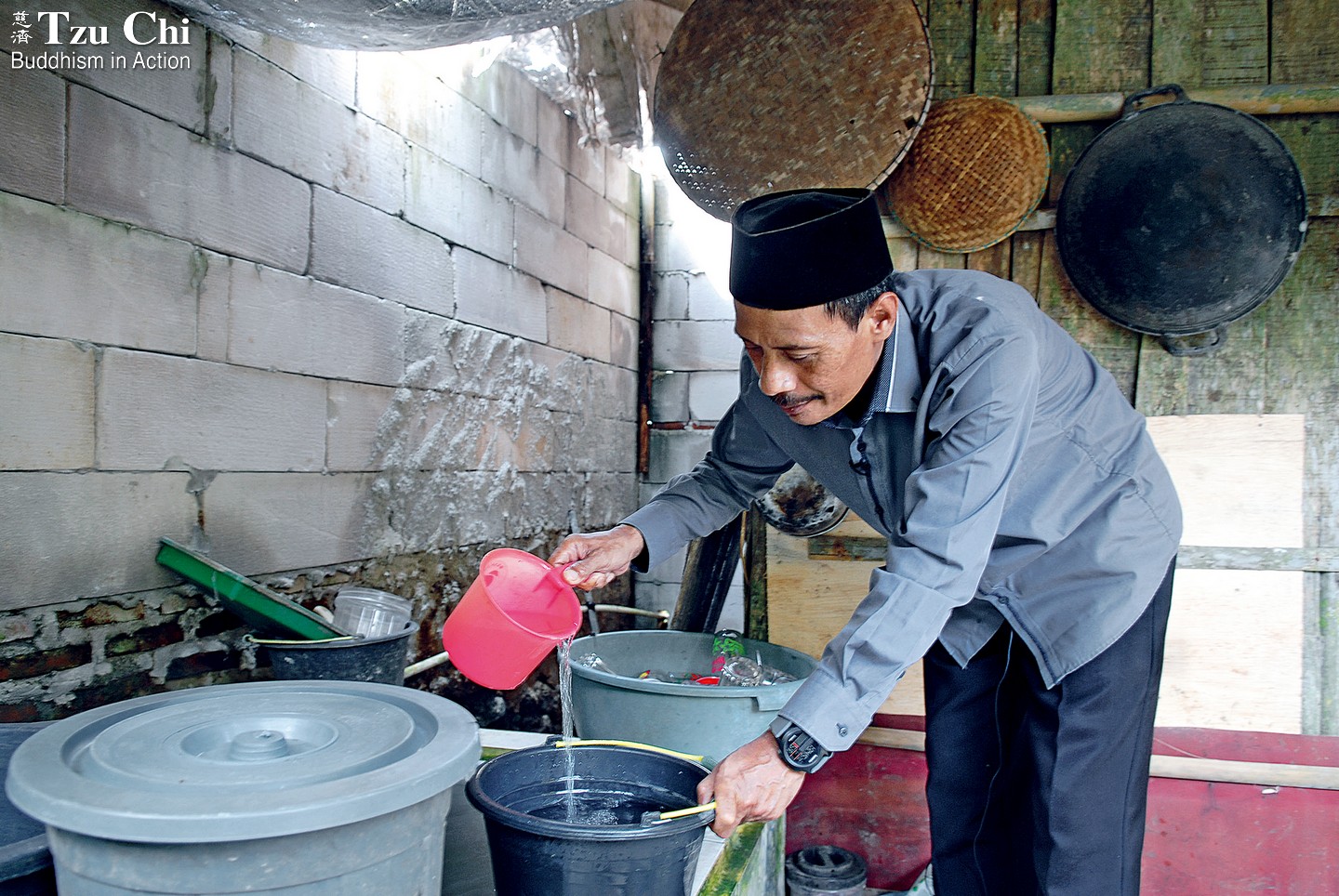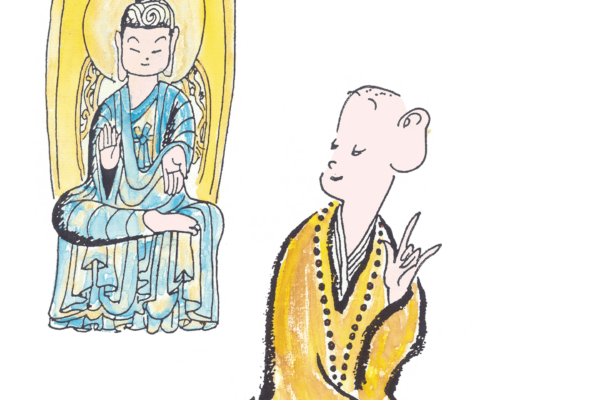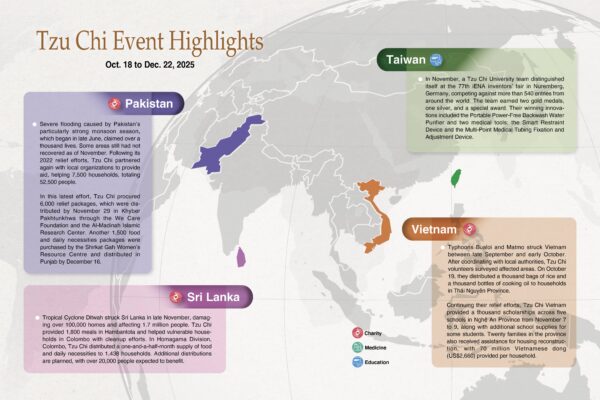Text and photos by Clarissa Ruth Octavianadya
Translated by Wu Hsiao-ting
After three years of searching for a water source, Tzu Chi volunteers, with military assistance, drilled a well for a village of 600 households facing a chronic water shortage, providing them with a reliable water supply.

A villager happily uses cupped hands to scoop and drink water from the new well.
If, after three years of searching and drilling, you still hadn’t found a site with sufficient water for a well, would you continue? That was what Tzu Chi volunteers faced in their search for a suitable water source for the Indonesian village of Kuranten.
Kuranten is located in Pandeglang Regency, Banten Province. The village’s rocky soil made it difficult to find a water source for a well, leading to water shortages and significant inconvenience for its residents. In 2021, Tzu Chi began assisting the village in finding a location to sink a reliable and sustainable well. But despite 11 attempts, they were unsuccessful. Volunteer Edi Sheen (沈茂裕) shared, “We and the villagers felt very helpless, almost to the point of giving up.”
Then, in November 2023, a water source was discovered at a depth of just six meters (20 feet) in Pakuhaji Village, three kilometers (1.9 miles) from Kuranten. After three days of drilling, a well 40 meters (130 feet) deep had been established, providing a continuous flow of clean water. Water pipes, pressure- and crack-resistant, were subsequently installed to bring the well water to the 600 families in Kuranten.
Muhammad Yusep, a resident of Kuranten, played a crucial role in successfully addressing the water challenge. He had been particularly saddened to see how the water shortages in Kuranten had led to open conflict over access to water. One person had even been injured and hospitalized, and the perpetrator imprisoned. These incidents were his motivation to help find a sustainable water source, including offering his family’s land for drilling.
Jaja Raharja’s home now has enough clean water for daily use.

A well had been established in Kuranten in the past with his help, but it had run dry just two months after it had been tapped. Since a good water source could not be found in Kuranten, Muhammad thought it might be better to search elsewhere and pipe the water to the village. He thought Pakuhaji, the village where he was born and raised, might be a good place to try. The village had abundant water sources, and his parents had left a piece of land there that just might serve the purpose. He proposed his idea to Tzu Chi volunteers after gaining approval from his family. Happily, his idea was successful and a water source was discovered there.
Tzu Chi collaborated with the military to drill a well, which was inaugurated on May 2, 2024. During the inauguration ceremony, Captain Deddy Bonar Sirait urged villagers to cherish the water source, saying: “This is a gift from heaven, so please conserve water.” Since Kuranten Village doesn’t have the infrastructure to channel the well water directly to residents, the water piped from Pakuhaji is stored at the village mosque for residents to access.
Fifty-year-old village resident Jaja Raharja helped his parents fetch water from distant places when he was young. He didn’t think the problem would continue for as long as it did. “Seeing others have water parties while our village suffered from scarcity was always very distressing,” he said. “Having clean water may seem like a small matter to most people, but it was a big deal in our village…. Thank Allah, and thanks also to Tzu Chi volunteers for helping us, regardless of religion, race, or skin color. They regarded our problems as their own, which deeply moves me.”
He believes that the journey to find water sources was an important part of his village’s history and a beautiful story to pass down through generations. He noted that with sufficient water, their quality of life and economy would improve, especially their crop yields. Over 5,000 villagers would no longer have to worry about water scarcity during the dry season. “We will cherish the water source and ensure that future generations do not have to struggle to obtain clean water,” he remarked.



